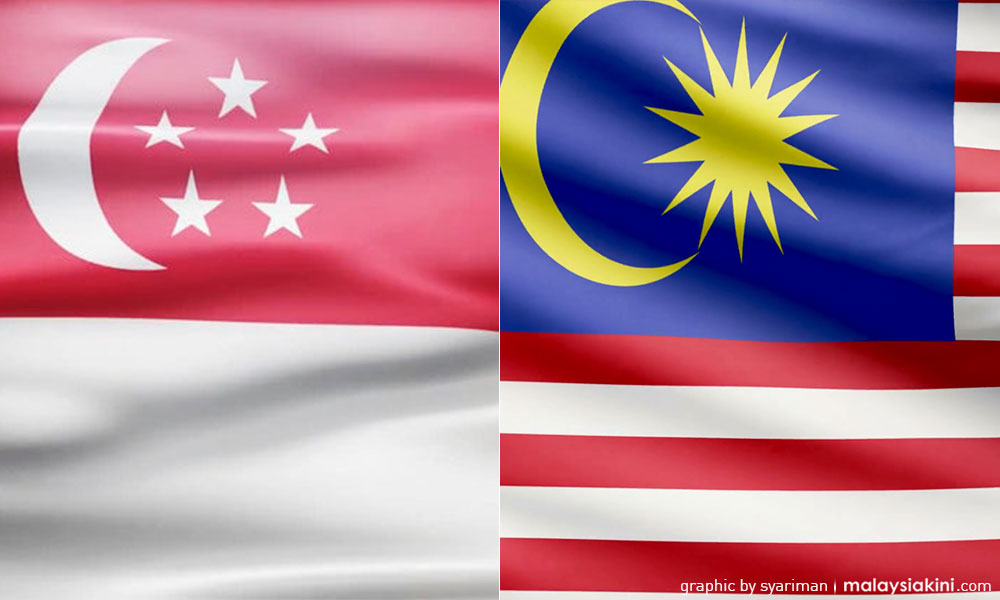
Malaysia’s and Singapore’s governments at each other’s throats? We’ve been here before.
One of the reasons why Singapore’s People’s Action Party (PAP) and, until May this year, BN have won national elections more consistently than any other party in democratic Asia is their ability to ratchet up domestic nationalist sentiment against the other.
The PAP has ruled Singapore for almost 60 years, while the BN era (including its Alliance predecessor) lasted 61 years. BN may no longer be in power, but Malaysia’s current governing coalition, Pakatan Harapan, has as prime minister the 93-year-old Dr Mahathir Mohamad, a former BN leader and persistent thorn in Singapore’s side. There is a tiresome familiarity to it all.
We can be sure of three things. First, once the sabre-rattling is done, the governments will eventually resolve all aerial and maritime boundary issues amicably.
Second, the big losers will be us, the citizens. In a world struggling to deal with nativism, and the dangers posed by demagogues who preen their exclusive identities at the expense of our common humanity, it has been worryingly easy for politicians to ignite dormant antagonisms against the other.
Malaysians and Singaporeans are essentially the same peoples – in both countries, one finds the same ethnicities, the same religions, the same cultures, the same cendol (almost). If even we can be so easily turned against each other, what hope do other more conflicting identities elsewhere in the world have?
Politicians on both sides have exhibited passive-aggressive tendencies. Rais Hussin (photo), a supreme council member of Bersatu, wrote an op-ed that combined a conciliatory call for cooler heads with a bald-faced threat that Singapore was at risk of “pain by a thousand cuts”. It was remarkable, not least because one rarely sees a Malay channelling a punishment from Imperial China.
Tan Chuan-Jin, Singapore’s speaker of parliament, reposted on Facebook a potentially incendiary video that suggests Malaysia may have nefarious motivations for its actions, such as inciting racial disharmony in Singapore.
He also asked followers to keep Singaporean soldiers “in our prayers,” a divine exhortation one usually associates with boots on battlefields. He ends off saying that “no one is trying to be jingoistic”, which is precisely the sort of disclaimer that makes one worry about jingoism.
Big winners
The third thing we know for sure is that the big winner from all this will be the PAP.
Ahead of a possible election next year, and amid an ongoing transition from its third to fourth generation leadership, the projection of power and the injection of fear – by the organisational machinery, including state media, moving in well-rehearsed lockstep – will ensure that many Singaporeans scurry, as we have always done, into its protective embrace.
More importantly, this brouhaha will help paper over some national security calamities under the current leadership.
This includes the 2018 cyberattack on SingHealth, the country’s biggest health group, that compromised the personal data of 1.5m patients, more than one in three Singapore residents, including that of Prime Minister Lee Hsien Loong; and the escape in 2008 of Mas Selamat Kastari, a suspected terrorist who clambered out of a toilet in his detention centre in the middle of Singapore and eventually made it to Malaysia.
Put another way, the present Singapore government has experienced serious lapses in defending the country against cyber terrorists and (accused) Islamic terrorists. Yet it comforts the electorate with the narrative that it is keeping at bay supposedly genuine threats from the likes of Malaysia and Indonesia.
Never mind that independent Singapore has never, in its 53-year history, faced a legitimate security threat from another country (the pre-independence MacDonald House bombing in early 1965, tragic as it was, was a symptom of Konfrontasi between Indonesia and Malaysia, not Singapore per se).
Never mind that there is a growing consensus around the world that the risk of traditional inter-state warfare has receded dramatically in the modern era.
Is Malaysia foolish enough to risk war with Singapore, a city that hosts elements of the US Air Force and Navy, and where perhaps half a million Malaysians work?
Apparently so, if one listens to the many Singaporeans opining on the subject – which is all a reflection, really, of the immutability of the vulnerability ethos that has gripped Singapore from the day it was forced out of Malaysia in 1965.
According to this worldview, Singapore will always, by virtue of its size and location, be vulnerable to foreign inter-state aggression. In the 1960s-70s the Israelis who helped set up the Singapore Armed Forces (SAF) transferred military know-how as well as their siege mentality.
The SAF is a leadership feeder for the PAP – the parliamentary speaker is but one of many – a relationship that partly explains Singapore’s institutional militancy.
Listening to the bellicose pronouncements emanating from these learned sages, one wonders if, mesmerised by 24-hour global news cycles, they’ve forgotten that we live neither by the Jordan River nor the Taiwan Straits, but the humble Johor Straits, a waterway so forlorn that the limping Mas Selamat was able in 2008 to swim, undetected, across its 1.1 kilometres.
To be clear, the suggestion here is not that Singapore has never been vulnerable to inter-state aggression (or that it never will be).
One need only consider Indonesia’s invasion of East Timor in 1975 for evidence that big states were gobbling up small ones in those prickly post-independence days. Rather, it is simply to propose that today’s geopolitical realities are different from the 1960s – something many in the establishment fail to grasp or openly acknowledge – and thus require a more calibrated response.
Yes, Singapore has lately been ramping up spending on cyber defence and counter-terrorism. In 2017, for instance, it set up the Defence Cyber Organisation to coordinate cybersecurity across the defence sector. Moreover, Mas Selamat was a whole ten, pre-Islamic State, years ago. Singapore’s ostensible immunity since then to regional terrorists is to be cheered.
Nevertheless, it is worth asking: has the PAP’s historical obsession with Singapore’s “large Muslim neighbours” distracted its attention and diverted national resources from those two far more credible threats?
This obsession may have other, less tangible costs. It is puzzling to think how Singapore can really nurture a global city, with all the openness and broad-mindedness that requires in its people, while ever so often renewing in them the fear of its neighbours.
No surprise, then, that many Singaporeans believe that the real gains from this global city are being captured by foreigners who neither have to serve in the army nor listen to the propaganda.
That points to the last benefit of this dispute to the PAP and SAF. The past year has seen two doubts raised about mandatory national service (NS), particularly among the youth.
One concerned the fate of Ben Davis, a promising teenage footballer who failed in his application to defer NS to pursue an opportunity with Fulham football club. The second revolves around the three national service training deaths over the past fourteen months. Both shone a light on the huge sacrifices young men in Singapore make.
Nothing restores the public’s faith in NS – and the need for a large standing army – like a territorial dispute with our old foe up north.
Familiar bogeymen
In Malaysia, it is less clear who stands to benefit from this. The popular notion is that Harapan is using Singapore as a bogeyman to distract Malaysians from its own shortcomings.
This includes its apparent failure to keep some election pledges and its backpedalling over the ratification of the International Convention on the Elimination of All Forms of Racial Discrimination (Icerd).
The latter issue has become a lightning rod for Malay nationalists who believe that the Harapan government will inevitably chip away at the special rights of Malays in the country as it seeks to build a society with greater equality of opportunity.
Indeed, though Malaysia and Singapore have long had similar multicultural societies, the two modern states have always had an ideological divide.
The countries separated in 1965 mainly because Malaysia wanted to offer more opportunities to Malays (and other bumiputeras), partly to compensate for perceived colonial-era injustices, while Singapore wanted to offer equal opportunities to all people (or at least strive to).
Malaysians finally threw BN out this past May largely because they believe Harapan will be less corrupt and more competent at delivering basic necessities. Yet there is a loftier, more idealistic strand of Harapan's support hoping that the coalition can formulate a new national creed that puts all ethnicities on a more equal footing. Hence the Malay right’s fear of losing privilege under this new administration is at least partly justified.
It is not clear if and how this conflict with Singapore will affect ethnic relations and political dynamics within Malaysia. The situation may do more for BN, now in opposition, some of whose leaders have never shied away from playing the race card.
Hishammuddin Hussein, the BN parliamentarian and previous defence minister – who once brandished the keris to rouse Malay nationalists – has said that “this is no longer a verbal war… stop the rhetoric and just do it.”
Will this dispute enable the ruling Harapan to burnish its foreign policy chops or will the coalition be pounced upon by the opposition BN for apparent weakness? The only clear victors, it seems, are the Malay nationalists, who can conflate the spectre of the Singapore Chinese and the local Chinese, all out to steal “their country” from them.
All of the above is not to suggest, like some conspiracy theorists might, that Lee Hsien Loong and Mahathir are orchestrating every move like a pair of conniving puppeteers.
To be sure, there are real aerial and maritime issues to be settled. Both states must defend their sovereignty. It is simply to point out which constituencies stand to gain from this nationalist train that has been set in motion, that has taken on a life of its own.
Thankfully, while hawks on both sides of the border have been trying to out-do each other, humorists have been poking fun at the banality of it all.
The last time Mahathir was in power, in 2003, both governments could control their narratives much better. Today they still forbid the selling of each other’s print newspapers – e.g., you can’t buy Malaysia’s New Straits Times in Singapore – but the Internet, particularly social media, has made redundant these ridiculous anachronisms, exposing the citizenry to much more diverse viewpoints.
Hopefully, Malaysians and Singaporeans don’t succumb to the nationalist echo chambers that would divide us. We have genuine, common enemies to contend with; and numerous opportunities to exploit together in a fast-growing region.
SUDHIR THOMAS VADAKETH is a senior editor with the Economist Intelligence Unit (EIU). He comments on macroeconomic, political and business issues in Asia, and has written for a variety of publications, including The Economist and The Straits Times. - Mkini


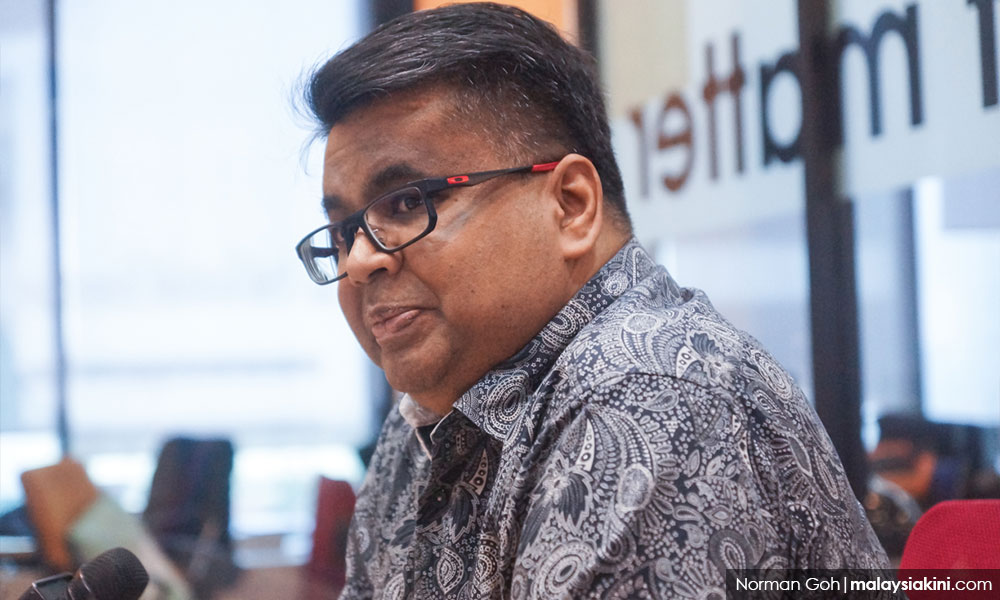
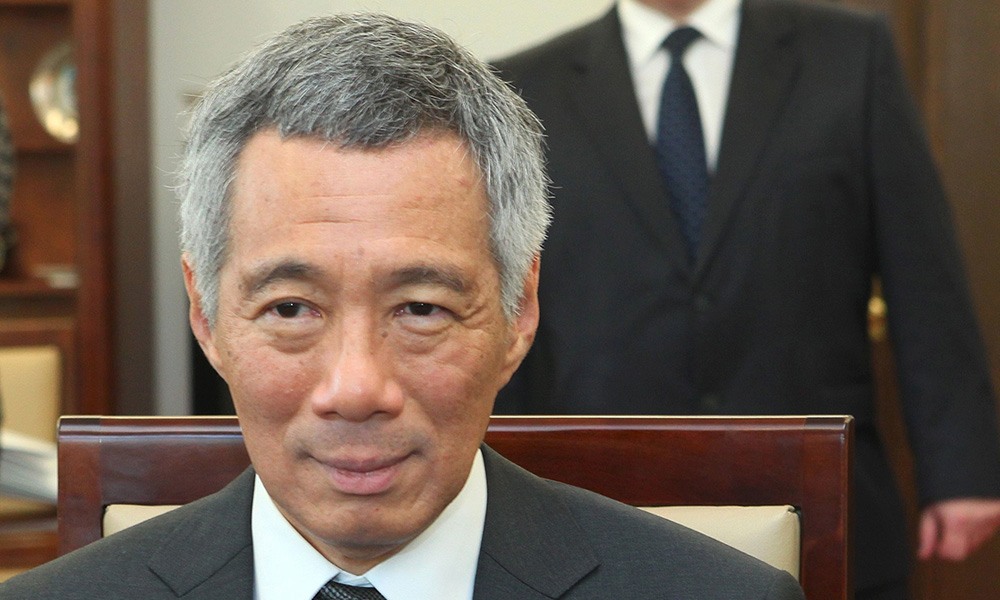
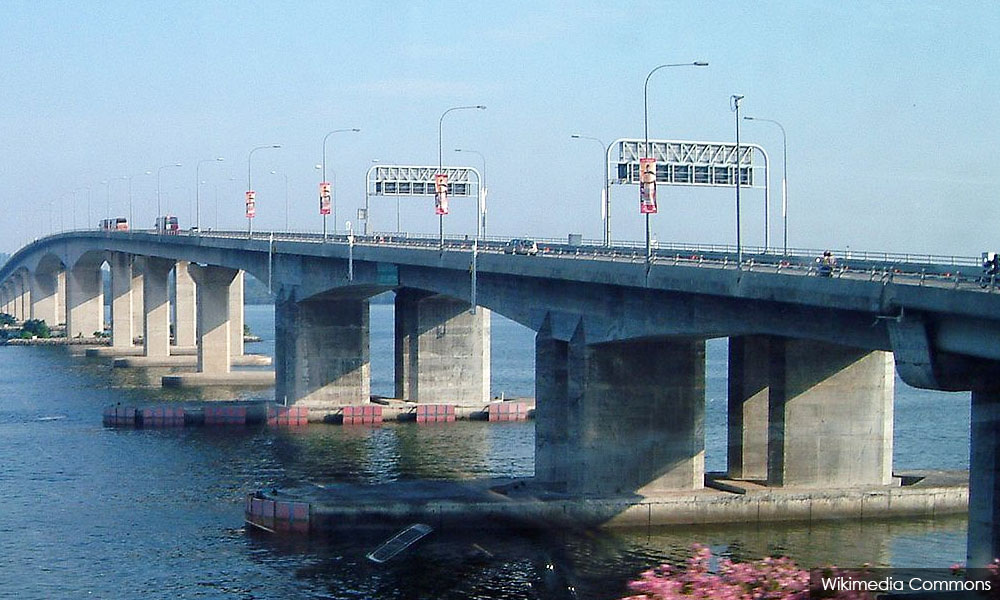
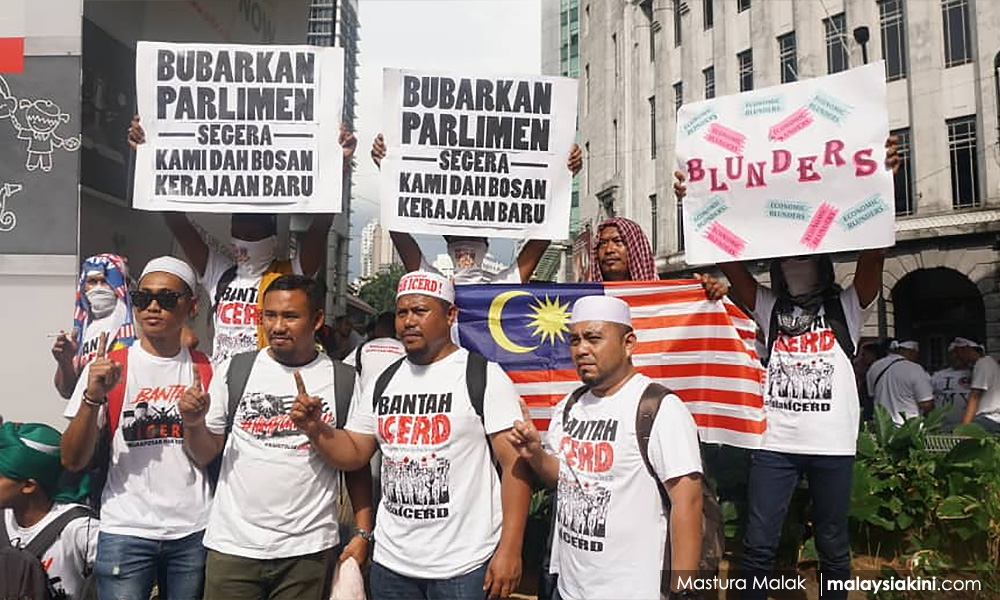
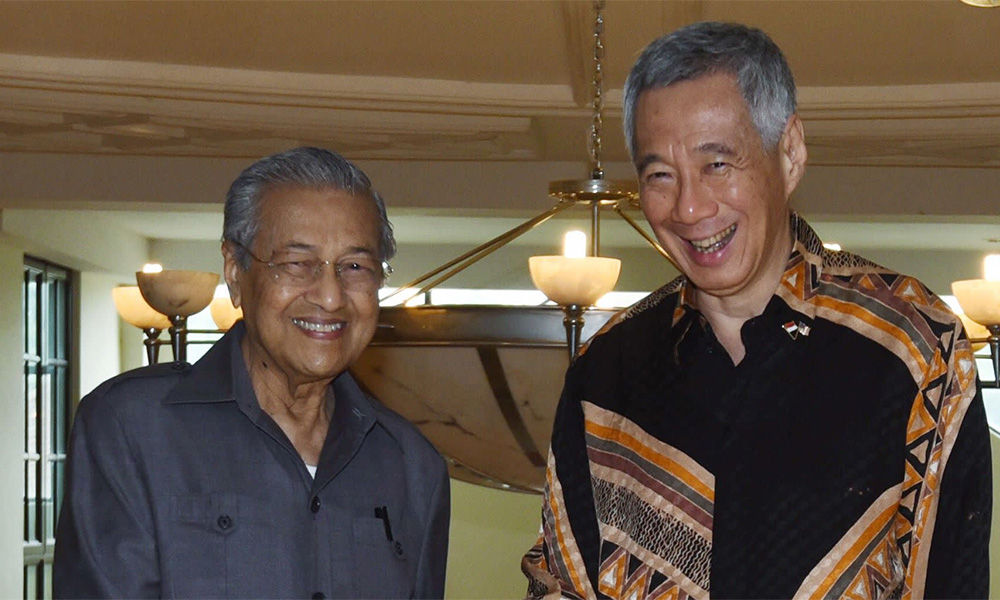
No comments:
Post a Comment
Note: Only a member of this blog may post a comment.